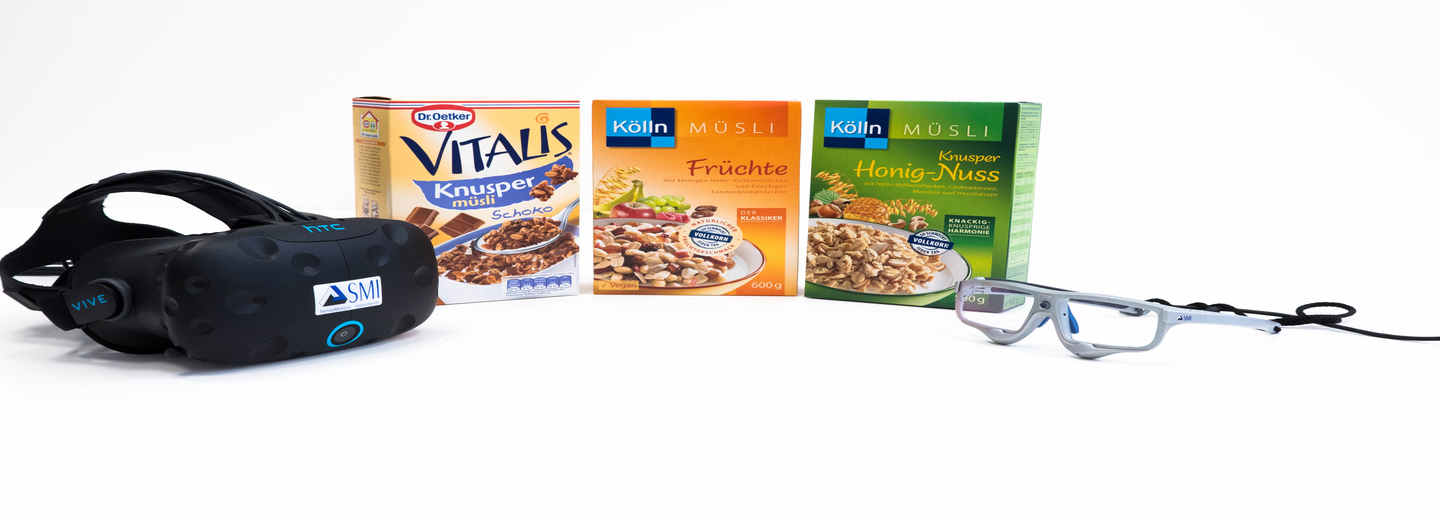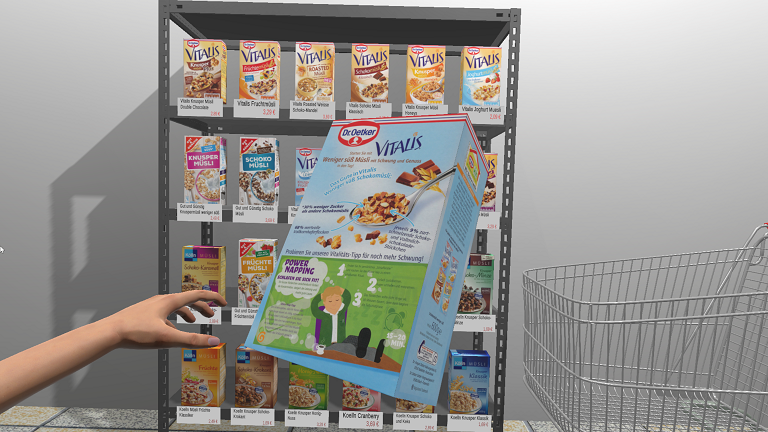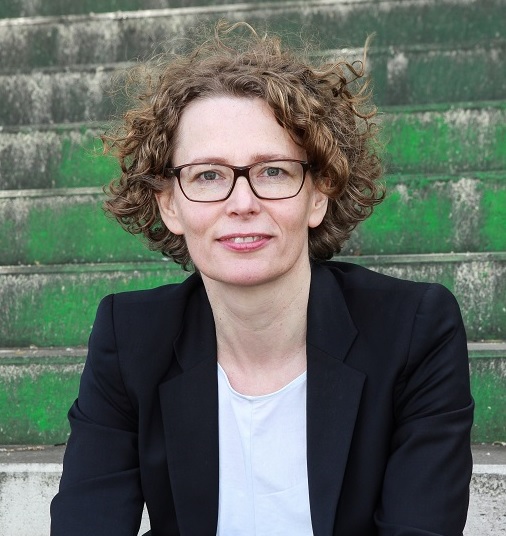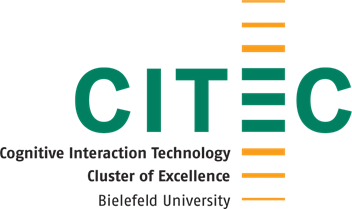
Using Virtual and Augmented Reality to Study Shopper Decision Making
How do consumers behave when shopping in Virtual Reality? Read about a new project at SDU that investigates consumer choice and information processing in virtual shopping environments
What is the research project about?
We study consumer choice and information processing behavior in virtual supermarkets. The goal of the project is to understand how consumers make decisions in high-immersive virtual reality (VR) by analyzing their choice behavior as well as examining their eye movements while they make decisions.
The long-term goal of our project is to develop recommendation systems that can give personalized recommendations based on real-time gaze information. To achieve that goal, we also need to compare information processing in physical and virtual reality. Our vision is that gaze-based recommendation systems will be used in future augmented reality applications to provide assistance in numerous different contexts.
In a consortium of researchers from SDU, Karlsruhe Institute of Technology, Nuremberg Institute for Market Decisions (formerly GfK Verein), the Cluster of Excellence Cognitive Interaction Technology at Bielefeld University (CITEC), we conduct an experimental study investigating differences in behavior between shopping in a desktop versus a VR environment using head-mounted displays.

Why is this research relevant?
Several large companies, such as the car manufacturer Volvo and the furniture maker IKEA, launched VR shopping applications. Given that VR shopping evolves from a research tool to a viable distribution channel, it is essential for researchers and practitioners to better understand how consumer make decisions in VR shopping environments.
Moreover, researchers from marketing (but also related fields such as management and information systems) are increasingly interested in learning how VR can be used in their research projects. We suggest to combine VR and mobile eye-tracking to create naturalistic experimental environments that increase the ecological validity of experiments.

Anja Dieckmann, Nuremberg Institute for Market Decisions, Founder and anchor shareholder of GfK SE
”Our interdisciplinary cooperation with scientists from the marketing department of the University of Southern Denmark (SDU), the Karlsruhe Institute of Technology (KIT), and the Cognitive Interaction Technology Center of Excellence at Bielefeld University (CITEC) provided a great opportunity to thoroughly evaluate benefits of new technologies like Virtual Reality (VR) and make the learnings available to marketing practitioners. For instance, displaying product arrays in VR rather than in a real store, offers a high degree of experimental control, making the technology an ideal candidate for studying shopping behavior and decision making.

